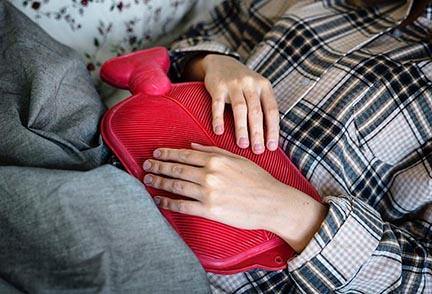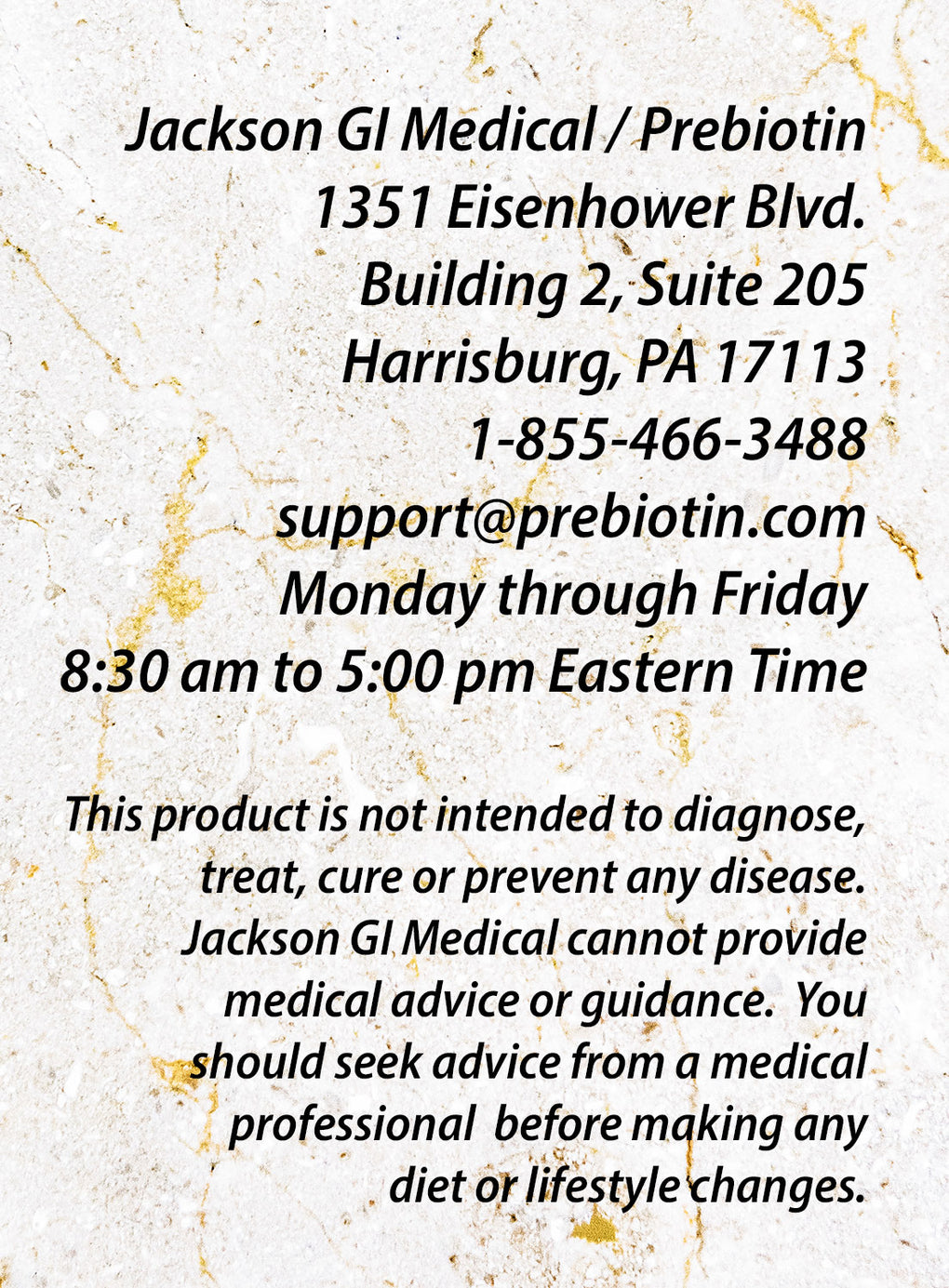
by Dr. Frank Jackson
Prebiotin Academy
Medical Concerns, Scientific Research and Diets
C. Difficile
Resources on this page:
The Facts About C. Difficile and How to Prevent It
C. difficile has been in the news a lot in recent years, mostly because this potentially deadly infection affects many people each year. According to the CDC, about 500,000 cases of C. difficile infections were reported in the U.S. in 2011, with about 29,000 of patients dying in the first month after being diagnosed. Fortunately, with recognition and preventative measures, the numbers have come down in recent years. Still no less of a problem and of utmost concern, the CDC reports for 2017 an estimated 223,900 cases in hospitalized patients and 12,800 deaths in the United States.
What Is C. Difficile?
Clostridium difficile (also known as C. difficile) is a germ. In the body, it can lead to serious infection and diarrhea. Most people who are infected by C. difficile are taking antibiotics and are in a healthcare setting, such as a hospital, nursing home or assisted living facility.
While antibiotics help patients fight off infection, they can also get rid of good bacteria and germs in the body, which can make someone vulnerable to a stomach infection. The C. difficile germ can live on surfaces like toilet seats, door handles and bed linens for a long time. If fecal matter from someone with the infection gets on these surfaces and a health care provider touches the affected surface and then touches an uninfected patient who is taking antibiotics, the patient can become infected.
C. difficile infection symptoms include:
- Diarrhea
- Fever
- Nausea
- Difficulty eating and no appetite
- Stomach upset and pain
Unfortunately, since one of the symptoms of infection is diarrhea and since the infection is spread by fecal matter, it can be very easy for C. difficile to spread.
How Can We Stop the Spread of C. difficile?
To stop the spread of infection, it’s important to be aware of how the infection is spread. You may be more at risk in healthcare settings, if you’re older, or if you’re taking antibiotics. You can prevent infection by:
- Washing your hands carefully when you visit a healthcare setting
- Washing your hands often if you’ve been diagnosed with C. difficile infection
- Reporting any symptoms to your doctor if you’re taking antibiotics
- Only taking antibiotics when needed
- Always following doctors’ instructions when taking antibiotics
- Taking prebiotics to encourage good bacteria in your gut
- Asking doctors and staff in healthcare settings to wear gloves or wash their hands before treating you
- Staying in separate hospital rooms if you have been diagnosed with a C. difficile infection, and cleaning the surfaces you come into contact with carefully
Fighting C. Diff: A Team Effort
 The Peggy Lillis Foundation, a C. diff education, and advocacy organization works to close this dangerous knowledge gap. The Foundation’s guiding ethos is to envision the world where C. diff is uncommon, treatable and survivable.
The Peggy Lillis Foundation, a C. diff education, and advocacy organization works to close this dangerous knowledge gap. The Foundation’s guiding ethos is to envision the world where C. diff is uncommon, treatable and survivable.
Proceeds from the Foundation’s annual galas are used to promote that vision, and we at Prebiotin are extremely proud to sponsor such an event. We share the belief that C. diff should matter to everyone.
It’s important to know that many people with C. diff are treated with antibiotics to help ward off infection. Unfortunately, antibiotics tend to also destroy good bacteria and germs in the gut, which in turn weakens the immune system.
Can You Make Yourself Less Vulnerable to C. Difficile?
Not only is C. difficile potentially deadly, but it can also come back. C. difficile infection recurs in about one in five patients.
So how can you make your body less vulnerable to the germ? You can start by staying generally healthy so you don’t need antibiotics as often. While antibiotics can save your life, you don’t want to be taking them too often. If you do, you could become vulnerable to drug-resistant illnesses and C. difficile. Getting adequate rest, exercising and eating well can also be a good place to start.
Taking prebiotics for overall health is another positive step towards boosting your immune system. Prebiotics encourage colon health, which is important to your overall health and immunity. Prebiotics help restores healthy microbiome and healthy gut bacteria, so you’re less vulnerable to C. difficile and diarrhea. Prebiotics are a plant fiber that encourages good bacteria in your gut to flourish. If antibiotics kill off some of the good bacteria or harm the microbiome in your body, prebiotics can nurture and grow the good gut bacteria that remain and help build the good environment that the good bacteria need to survive.
Blogs

|
What You Should Know About C. Diff and Fecal TransplantsBy Gabriele Amersbach, Prebiotin Science Writer |
Guest Blog: Peggy Lillis Foundation Fights C. DiffBy Gabriele Amersbach, Prebiotin Science Writer |
|
Testimonials
A Cautionary Tale...
Our father, Donald D. Lockhart, was recovering from a stroke with early onset dementia in April of 2015. He then had an abscessed tooth removed followed by heavy doses of antibiotic. He was transferred to a skilled nursing facility due to his physical weakness. He then developed diarrhea, which we thought was to be expected with such strong antibiotics.
However, he then spiked a 102-degree temperature and was taken to the ER, revealing pneumonia and C. diff, leading to A-fib. We had never heard of C. diff before, but now know that it is a virulent bacterial infection that kills 29,000 people a year.
It is often found in healthcare facilities. In this case, the nursing facility was aware of the fact that they had patients with C. diff, but had not isolated them to their rooms.
We took our father to numerous follow-ups with an infectious disease doctor who finally suggested a specialist who performed Fecal Microbiota Transplants (FMT). This sounded crazy to us!
At this point, however, we realized that the current treatment would never work. For six months his treatment consisted of more antibiotics (this time we added PRObiotics) but every time our father finished the antibiotics, the C. diff would return in three days. Now we were ready to visit the recommended fecal transplant doctor!
The physician in the Ft. Worth area started my Dad on Prebiotin, along with then performing the fecal transplant procedure in November 2015. There was a point before the procedure when I believed that C. diff would end my father's life. Between the procedure and we believe due to the support of Prebiotin, my father's C. diff was CURED!! We then continued Prebiotin as part of his daily supplements until his passing in February 2016.
His physician's recommendations were: "Never probiotics -- always prebiotics!" Prebiotin is in his written treatment handouts. Thank you Prebiotin for being a part of my father's feeling so much better the last few months of his life.
The Lockhart Family
Explore More
Medical Concerns, Scientific Research and Diets
-
Antibiotics and the Microbiome
-
C. Difficile
-
Calcium and Bone Density
-
Cancer
-
Celiac Disease and Gluten Intolerance
-
Children and Prebiotics
-
Colon Gas and Flatus
-
Colon Polyps and Cancer
-
Constipation
-
Crohn’s Disease
-
Diabetes Type 2
-
Diarrhea
-
Diverticulosis
-
Dysbiosis
-
End Stage Kidney Disease/Dialysis
-
Fatty Liver/Steatohepatitis
-
Fissure, Fistula and Abscess
-
Gut-Brain Connection
-
Heart and Cardiovascular
-
Hemorrhoids
-
High Fiber Diet
-
Immunity
-
Inflammatory Bowel Disease
-
Irritable Bowel Syndrome
-
Leaky Gut Syndrome
-
Low Fat Diet
-
Low Fiber Diet
-
Obesity and Weight Management
-
Toxins in the Colon
-
Ulcerative Colitis






